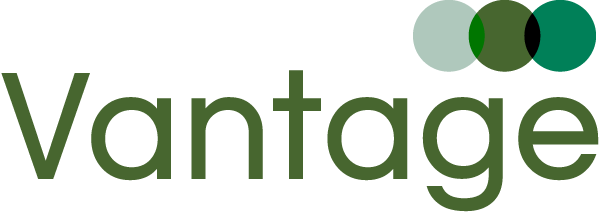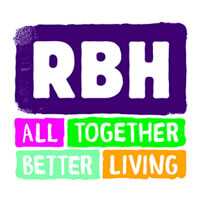Interview with Nickie Hallard, Finance Director.
Delivering over £3 million of sustainable cost savings
Q: What was the background prior to RBH deciding to transform your maintenance service?
A: RBH (as an Arm’s Length Management Organisation – ALMO) took over the management of the Council’s former Direct Labour Organisation from its creation in 2002. It had previously been part of the Council’s Housing Services Department.
Since then the service had developed to be very customer focussed and responsive, delivering a high quality service.
It was not very performance focussed and suffered from low productivity. There had also never had any kind of benchmarking process in the organisation.
Q: What were the key challenges you faced within the service?
A: The level of service provided came at a high cost, which was increasingly looking out of line with peer housing associations who were taking a more commercial approach to their repairs services.
Economic challenges and the drive for improved value for money (VFM) in the sector meant that providers were taking different approaches to service delivery, either through in-house teams or outsourced arrangements.
During 2009, the Council began discussions with RBH and its tenants over the long term future of social housing in Rochdale. Whichever option was to be chosen it was clear that having a repairs team providing demonstrable VFM was critical to the future success. Ultimately, it was decided that ownership should transfer to a new form of mutual housing association, co-owned by tenants and employees. To secure this transfer the Council needed to get agreement from the Department for Communities and Local Government (DCLG).
For this approval to be granted DCLG were seeking assurance that the repairs service that would be offered by RBH would offer VFM comparative to other housing associations with the reduced costs forming part of a newly approved Business Plan. This gave a significant imperative to increase the commerciality of the offer and deliver cost savings.
Q: Why did you decide to partner with Vantage Business Solutions?
A: An initial internal review identified some savings but was unable to drive through changes of significant scale. It was very clear we needed some external input to challenge our thinking.
We first became aware of Vantage through its work with another ALMO, and following a number of initial conversations we were confident they could bring the skills we needed to deliver a step change in the way we delivered our service.
Q: What did Vantage do first?
A: Vantage carried out a strategic assessment for RBH, presenting our organisation with a number of options for our internal maintenance service. This included showing us what good models looked like relevant to our specific circumstances. This saved us a lot of time and allowed us to focus on selecting the right option. We would never have got to this point on our own. We needed their experience and knowledge.
If it had been easy, we could have done it ourselves.
Q: What were the biggest challenges you faced?
A: Even though we knew there was scope for significant improvement, having the shortcomings in our own processes bought to our attention was uncomfortable. Clearly taking costs out of this scale had significant implications in terms of the services offered, how these were delivered and the size of the team. In a team which had been largely static for many years this was a significant challenge.
Engaging with our repairs team was, at first difficult – there was this feeling that things were being done to them. When we started to try and engage, we met a brick wall.
A small number, however, saw the potential and got excited, but some of those with longer service were reluctant to change.
Vantage helped us to change the relationship with the repairs team, creating a more engaged culture. One of the successes has been the setting up of a Repairs Engagement Group – this has helped to improve the dialogue between the team and management.
People are now much more willing to come forward with their ideas on how things can be improved whereas before there would have been suspicion. Now our repairs team is helping to drive and implement change. They regularly get together at lunch-time to solve an issue.
Vantage helped to kick-start a culture change, creating the opportunity for a better culture to be nurtured.
Q: What were the key project outcomes?
A: Just over £3m of sustainable cost savings were delivered. This was achieved through a series of work streams, including:
- Removal of employee ‘pools’ (geographic, operational area or team structure) that were creating artificial constraints on effective deployment of resources
- Introduction of mobile solutions, e.g. to schedule work
- Removal of paper systems that were not cost effective and significantly impacted on down time
- Introduction of a clear performance management framework, leading to an increase in productivity
- The changes made resulted in a reduction of 41 posts (largely reduced through voluntary retirement and redeployment).
As a result of this work we were able to satisfy DCLG that we had a value for money repairs service and this contributed to the successful approval of the Transfer.
There was a very real possibility that our internal maintenance team might have ceased to exist. If our service had been market-tested, we would have lost it. In order to achieve what we did, we had to make significant cost savings.
Q: Could you have achieved this transformation on your own?
A: We could not have achieved sustainable change on this scale without external support and challenge.
We chose the option of working alongside Vantage on the implementation with the price paid being linked to sustainable savings delivered. We felt that would ensure recommendations were grounded in reality and a vested interest of all parties in driving through delivery.
While certainly uncomfortable at times, the benefit that Tony Bryan and the team brought, in addition to a huge amount of knowledge and experience, is that long held norms and outdated practices were highlighted and robustly challenged.
This was thoroughly supported by the use of data to evidence the benefits of a change in approach. This focus on the use of data to manage and drive performance opened up a different perspective on how to take the service forward.
To make the necessary progress it was important that this data was shared openly and honestly.
In addition, a dedicated project manager brought discipline and structure to the process with us being held to account for progress.
The environment in which we operate has changed significantly since this work was completed and inevitably that means that there have been further changes. These have, however, been undertaken with a much more commercial focus and within the reduced Business Plan parameters, leaving RBH in a good position to respond to the current economic challenges and demonstrate continuous improvements in value for money.

